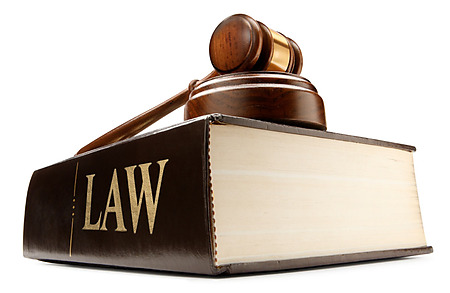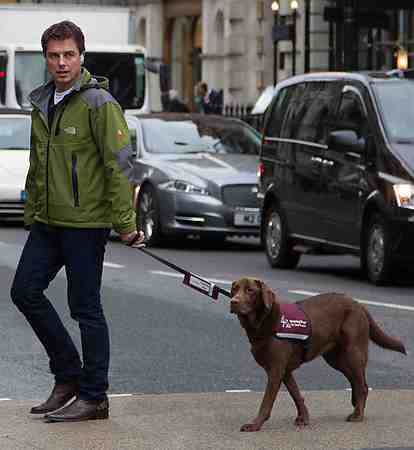Deaf Life8th November 2015
Deafism - the Hidden and Never Talked About Discrimination
Daily discrimination is a common experience for many Deaf people in their work and private lives

When people are deafist, do you think they realise it? It seems highly unlikely they do. The problem, is that being deafist seems so widespread, no-one polices it. No-one gets advised, reprimanded, re-educated or hauled over the coals for behaving in a way that kicks deaf workers or customers where it hurts. Whether that is direct deafism or indirect, the outcomes are often the same – exclusion, isolation, hurt, harm, disadvantage or just simply another bout of tears. Deaf people are fair game it seems.
 If there was an independent and balanced review of the impact of the law in the UK, it would conclude that successive Disability Discrimination and now Equality legislation, all designed to eradicate pointed hatred and unfairness, has failed miserably when it comes to deaf discrimination – deafism.
If there was an independent and balanced review of the impact of the law in the UK, it would conclude that successive Disability Discrimination and now Equality legislation, all designed to eradicate pointed hatred and unfairness, has failed miserably when it comes to deaf discrimination – deafism.
Never mind the gimmicky ‘deaf for a day’ celebrity experiences that are designed primarily to raise the profile of a charity, spend an active day out and about with someone who is Deaf, in their workplace, meeting people, socialising, so living their experience, and you will see deafism many times throughout that day. If you have a heart, you will feel guilty and ashamed that a fellow human being could be treated this way.
Accused of deafism, people will instantly jump to a position of denial, probably followed by a statement something along the lines of, “I’m not deafist, one of my best friends in school was Deaf.” The reality is that few of us want to be deafist, or do anything that leads someone to believe we are, it is the lack of thought, deaf awareness and understanding that often underpins the way we relate to someone who is Deaf.
 For some people, their level of ignorance acts as a comfort blanket and the basis of their denial. They use their ignorance to argue that they are not deafist, they simply didn’t realise that their action or inaction, was inappropriate. The problem with that argument, is that in the eyes of the law, ignorance is no excuse, so it should certainly be socially unacceptable to behave that way.
For some people, their level of ignorance acts as a comfort blanket and the basis of their denial. They use their ignorance to argue that they are not deafist, they simply didn’t realise that their action or inaction, was inappropriate. The problem with that argument, is that in the eyes of the law, ignorance is no excuse, so it should certainly be socially unacceptable to behave that way.
The problem with deaf discrimination is that it happens so much and knowledge so poor, the checks and balances that are often in place for other types of discrimination are simply not there, so repeated inappropriate behaviour goes unchallenged. Equalities Officers, the expert advisors on such issues in organisations, rarely have knowledge of deafness themselves, meaning that the advice needed to drive improvement is simply not there. In some cases, it just reinforces an organisation as having a deafist culture. On top of that, Deaf people have had tremendous difficulty in challenging these behaviours, often meaning that they have come to accept poor attitudes and just make the best of things. That silence leads people and organisations to believe they are doing nothing wrong. That assumption could not be further from the truth.
In a typical week, a Deaf person might experience any number of the following examples of Deaf discrimination:
 Attending a group meeting where no planning is undertaken, often resulting in no communication support being arranged, wrong positioning in respect of light or lip-reading, no managed turn taking, no pre-papers and no opportunity to contribute.
Attending a group meeting where no planning is undertaken, often resulting in no communication support being arranged, wrong positioning in respect of light or lip-reading, no managed turn taking, no pre-papers and no opportunity to contribute.- Being asked to attend training where communication needs have been ignored or where the trainer has no idea how to work with an interpreter.
- People working around a Deaf colleague going for lunch but not inviting him/her to join them.
- Colleagues chatting about a TV programme, event or other activity but not including a Deaf colleague.
- Managers, supervisors, trainers or equalities officers, responding to requests for communication support as though it is learning disability.
- A fire alarm going off, but a Deaf employee being unaware because it is a sound only system with no back-up plan.
- A supervisor or manager talking directly to an interpreter or support worker rather than to their Deaf member of staff.
- Colleagues over 5, 10 and 15 years avoiding eye contact so that they don’t have to engage in the exchange of even minor pleasantries.
- Staying overnight in a hotel but having to go to reception or the restaurant to order room service and then having to keep an eye on the corridor, waiting for its delivery.
- Standing on a railway platform waiting for a train, unaware that a voice announcement has told everyone else the platform number has changed.
- Going to the cinema to see a scheduled subtitled film, only for the cinema to forget to put the subtitles on or turning them off because people were complaining they were getting in the way of their viewing.
- Going to the doctors and waiting patiently to be told it was their turn, only for a voice announcement to be used and the Deaf person missing their appointment.
- Insurance companies insisting on a Deaf customer ringing their call centre to discuss their policy.
- Work colleagues treating you as though you are thick or have a learning disability.
 These are just a handful of the many discriminatory examples that regularly take place in work and in recreational life. Individually, as a one off, any of these experiences would be annoying, and someone could just laugh it off, but when several of these are experienced in a single day or a week, week in week out, it goes well beyond annoying or inconvenient. It becomes damaging, detrimental to health and well-being, and generates doubt about self worth and being valued.
These are just a handful of the many discriminatory examples that regularly take place in work and in recreational life. Individually, as a one off, any of these experiences would be annoying, and someone could just laugh it off, but when several of these are experienced in a single day or a week, week in week out, it goes well beyond annoying or inconvenient. It becomes damaging, detrimental to health and well-being, and generates doubt about self worth and being valued.
When challenged, the people involved are quick to apologise and say they didn’t realise. What they should be saying is, “Sorry, I didn’t think!”
 Nobody talks about ‘deafism’. It ranks nowhere when compared to attitudes around racism, sexism, ageism, or almost any other ism. Lack of a high profile miscarriage of justice, civil case compensation claim or effective negotiating voice at national policy level, means that deafism is a non issue. The Deaf community is littered with survivors of this atrocious mental torture. They put up with this daily discrimination and just get on with making the best of it. They do that because they have no choice!
Nobody talks about ‘deafism’. It ranks nowhere when compared to attitudes around racism, sexism, ageism, or almost any other ism. Lack of a high profile miscarriage of justice, civil case compensation claim or effective negotiating voice at national policy level, means that deafism is a non issue. The Deaf community is littered with survivors of this atrocious mental torture. They put up with this daily discrimination and just get on with making the best of it. They do that because they have no choice!
Ultimately, as human beings, we need to ask whether that is right.
Article by Simon Deacy OBE
posted in Community / Deaf Life
8th November 2015





